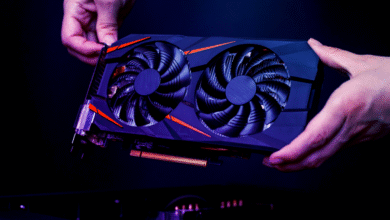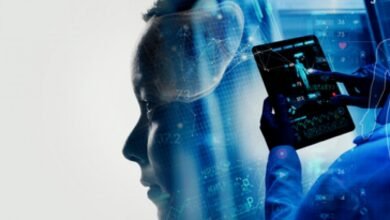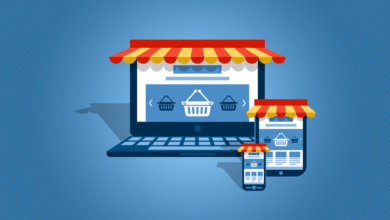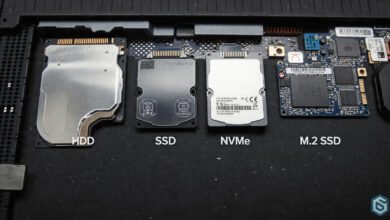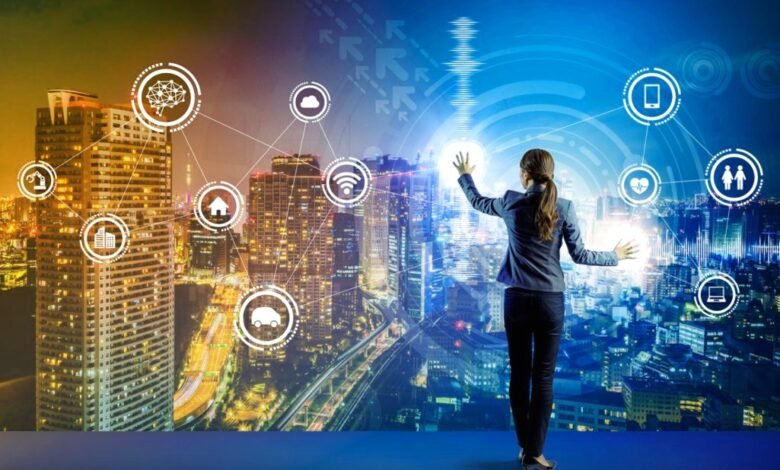
The Internet of Things (IoT) has emerged as a transformative force across industries, and by 2025, its impact on UK businesses is set to be profound. IoT refers to the interconnected network of devices, sensors, and systems that collect, share, and analyze data in real-time. This technology is not just a buzzword; it is reshaping how businesses operate, compete, and deliver value to customers. From manufacturing to healthcare, retail to agriculture, IoT is driving efficiency, innovation, and sustainability. In this article, we explore how IoT is revolutionizing UK businesses in 2025, breaking down its impact into key areas.
1. Enhanced Operational Efficiency
One of the most significant ways IoT is transforming UK businesses is by enhancing operational efficiency. By 2025, IoT-enabled devices and systems will be deeply integrated into business operations, automating processes and reducing human error.
Real-Time Monitoring and Predictive Maintenance
IoT sensors are being deployed across factories, warehouses, and supply chains to monitor equipment performance in real-time. For example, in the manufacturing sector, IoT devices can track machine health, detect anomalies, and predict when maintenance is needed. This predictive maintenance approach minimizes downtime, reduces repair costs, and extends the lifespan of machinery. In the UK, where manufacturing contributes significantly to the economy, IoT is helping businesses stay competitive in a global market.
Streamlined Supply Chains
IoT is also revolutionizing supply chain management. Smart sensors and GPS-enabled devices provide real-time visibility into the movement of goods, enabling businesses to optimize routes, reduce delivery times, and cut fuel costs. For instance, UK-based logistics companies are using IoT to track shipments, monitor storage conditions, and ensure timely deliveries. This level of transparency and control is critical in an era where customers demand faster and more reliable service.
2. Improved Customer Experiences
In 2025, customer expectations will be higher than ever, and IoT is playing a pivotal role in meeting these demands. By leveraging IoT, UK businesses are delivering personalized, seamless, and engaging customer experiences.
Personalized Retail Experiences
In the retail sector, IoT is transforming the shopping experience. Smart shelves equipped with weight sensors and RFID tags can track inventory levels in real-time, ensuring that popular products are always in stock. Meanwhile, IoT-enabled beacons in stores can send personalized offers and recommendations to customers’ smartphones based on their shopping history and preferences. UK retailers like Tesco and John Lewis are already adopting these technologies to enhance customer satisfaction and drive sales.
Smart Homes and Connected Devices
The rise of smart home devices is another example of IoT’s impact on customer experiences. By 2025, more UK households will be equipped with IoT-enabled devices such as smart thermostats, security cameras, and voice assistants. Businesses in the home automation sector are leveraging this trend to offer innovative products and services. For instance, energy companies are using smart meters to provide customers with real-time insights into their energy consumption, helping them save money and reduce their carbon footprint.
3. Data-Driven Decision Making
IoT generates vast amounts of data, and by 2025, UK businesses will be using this data to make smarter, more informed decisions. From marketing strategies to product development, IoT is enabling data-driven decision-making at every level.
Advanced Analytics and Insights
IoT devices collect data on everything from customer behavior to equipment performance. Advanced analytics tools can process this data to uncover patterns, trends, and insights that were previously invisible. For example, UK-based healthcare providers are using IoT to monitor patient health remotely and analyze data to improve treatment outcomes. Similarly, retailers are using IoT data to optimize store layouts, product placements, and marketing campaigns.
AI and Machine Learning Integration
The integration of IoT with artificial intelligence (AI) and machine learning is taking data-driven decision-making to the next level. By 2025, UK businesses will be using AI-powered IoT systems to automate complex tasks, predict market trends, and identify new opportunities. For instance, financial institutions are leveraging IoT and AI to detect fraudulent transactions in real-time, while agricultural businesses are using these technologies to optimize crop yields and reduce waste.
4. Sustainability and Environmental Impact
As the UK strives to meet its net-zero emissions target by 2050, IoT is playing a crucial role in helping businesses reduce their environmental impact. By 2025, IoT will be a key enabler of sustainable practices across industries.
Energy Efficiency
IoT is helping businesses reduce energy consumption through smart energy management systems. For example, smart lighting and HVAC systems can adjust automatically based on occupancy and weather conditions, significantly cutting energy usage. UK businesses are also using IoT to monitor and optimize energy consumption across their operations, from office buildings to manufacturing plants.
Waste Reduction
In the agriculture and food industries, IoT is being used to minimize waste. Smart sensors can monitor soil conditions, crop health, and storage environments, ensuring that resources are used efficiently and food is preserved effectively. Similarly, in the manufacturing sector, IoT is enabling businesses to track and reduce waste throughout the production process.
5. Enhanced Workplace Safety
Workplace safety is a top priority for UK businesses, and IoT is making workplaces safer than ever before. By 2025, IoT-enabled safety solutions will be standard in many industries.
Wearable Technology
Wearable IoT devices, such as smart helmets and safety vests, are being used to monitor workers’ health and safety in real-time. These devices can track vital signs, detect hazardous conditions, and send alerts in case of emergencies. For example, in the construction industry, IoT wearables are helping to prevent accidents and ensure compliance with safety regulations.
Remote Monitoring and Automation
IoT is also enabling remote monitoring of hazardous environments, reducing the need for human intervention. Drones and robots equipped with IoT sensors can inspect dangerous areas, such as oil rigs or chemical plants, without putting workers at risk. This not only enhances safety but also improves efficiency and reduces costs.
6. New Business Models and Revenue Streams
IoT is not just improving existing business processes; it is also creating entirely new business models and revenue streams. By 2025, UK businesses will be leveraging IoT to offer innovative products and services.
Product-as-a-Service
One emerging trend is the shift from selling products to offering them as a service. For example, instead of selling industrial equipment, manufacturers are using IoT to offer equipment-as-a-service, where customers pay for usage rather than ownership. This model provides businesses with recurring revenue and strengthens customer relationships.
IoT-Enabled Ecosystems
IoT is also enabling businesses to create interconnected ecosystems of products and services. For instance, smart home companies are partnering with energy providers, security firms, and appliance manufacturers to offer integrated solutions. These ecosystems provide customers with greater convenience and value, while businesses benefit from increased cross-selling opportunities.
7. Challenges and Considerations
While the benefits of IoT are undeniable, UK businesses must also address several challenges to fully realize its potential.
Data Security and Privacy
As IoT devices collect and transmit vast amounts of data, ensuring data security and privacy is critical. Businesses must invest in robust cybersecurity measures and comply with regulations such as the General Data Protection Regulation (GDPR).
Interoperability and Standards
With so many IoT devices and platforms available, interoperability can be a challenge. Businesses need to adopt common standards and protocols to ensure seamless integration and communication between devices.
Cost and Complexity
Implementing IoT solutions can be costly and complex, particularly for small and medium-sized enterprises (SMEs). However, as technology advances and becomes more affordable, these barriers are likely to diminish.
Conclusion
By 2025, IoT will have revolutionized UK businesses across industries, driving efficiency, innovation, and sustainability. From enhancing operational efficiency and improving customer experiences to enabling data-driven decision-making and creating new revenue streams, IoT is reshaping the business landscape. However, to fully harness its potential, businesses must address challenges such as data security, interoperability, and cost. As IoT continues to evolve, UK businesses that embrace this technology will be well-positioned to thrive in an increasingly connected world. The future is IoT, and the future is now.


